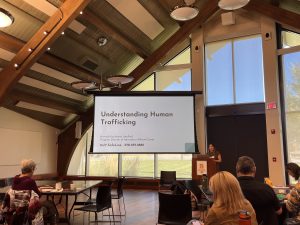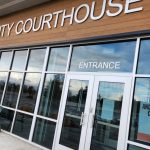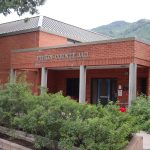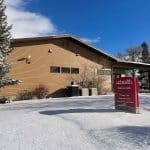Advocates of Routt County educates on human trafficking, domestic violence
Training sessions scheduled through Friday
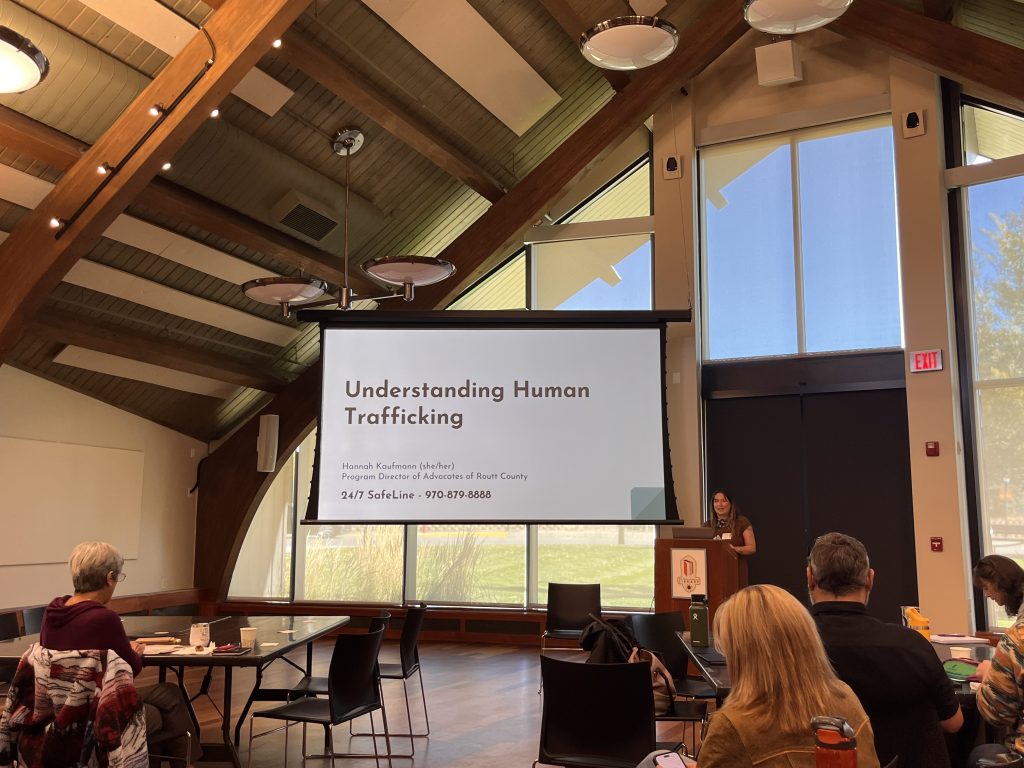
Emma Pilger/Steamboat Pilot & Today
Advocates of Routt County held a session discussing domestic violence and human trafficking in Northwest Colorado on Wednesday as part of its social justice training series, which provides education and training on the two issues along with steps toward recovery and healing.
Each day of the trainings, which span Tuesday through Friday this week at Bud Werner Library’s Library Hall, covers a different aspect of social justice.
Tuesday kicked off the week with a discussion featuring anti-oppression speaker and trainer Regan Byrd, then continued to cover topics such as domestic violence and human trafficking on Wednesday. The session discussed how to identify domestic violence and human trafficking in all the forms.
Advocates of the Routt County Program Director Hannah Kaufmann noted that there is no single way the issues manifest, and each situation is unique and requires a tailored response.
“What I’ve come to realize is that trafficking happens wherever there are people,” said Kaufmann during the session, while discussing human trafficking. “It might look different if you’re geographically based somewhere more urban as opposed to rural, but it does happen everywhere.”
Kaufmann started the discussion around human trafficking by defining what it is and how it is different from consensual sex work.
For those over 18, anyone involved in commercial sex acts through force, fraud or coercion is considered human trafficking. For anyone under 18, commercial sex acts of any kind are considered trafficking, said Kaufmann.
Although human trafficking has been happening around the globe for thousands of years, it only became a prosecutable crime in the United States in 2000 with the Trafficking Victims Protection Act, according to the American Bar Association.
Since trafficking was made illegal only 25 years ago, Kaufmann said, there are many misconceptions around what human trafficking is and how and why it happens.
“Sometimes we think about things like kidnapping or people being snatched off the streets, and that kind of narrative in how people are getting involved in trafficking,” said Kaufmann. “While that does happen sometimes, there are a lot of other ways that someone might get involved in a situation of exploitation.”
Kaufmann also noted that not all human trafficking situations are linked to sex acts, but can also include labor trafficking.
In Routt County, both forms of trafficking exist, but Kaufmann said labor trafficking is more common than sex trafficking, and there is a lack of data to estimate how common human trafficking is in Northwest Colorado.
“Trafficking doesn’t happen in a vacuum,” said Kaufmann. “It’s much more likely that vulnerabilities in someone’s life will lead them to make tough decisions and that they might get involved in some things they don’t necessarily sign up for.”
In many human trafficking situations, victims often know and trust their traffickers and are typically groomed and coerced over time.
“Someone can be trafficking just their intimate partner or just their child,” Kaufmann said. “It doesn’t have to be a whole network or trafficking ring like we might hear about sometimes.”
Women, youth, immigrants and LGBTQ+ people are more likely to be trafficked. About 70 to 90% of human trafficking survivors have experienced some form of abuse in the past, according to Kaufmann.
Kaufmann added that some people who are trafficked eventually become traffickers due to systematic oppression and trauma.
“Someone with a history of abuse might have a really blurred definition of what love looks like and what a healthy relationship looks like,” said Kaufmann. “When (a trafficker) steps in and offers a relationship, friendship, mentor or intimate partner, it’s really human to lean into that and want that connection with other people.”
To fight human trafficking, Kaufmann said the first step is community education and being able to recognize trafficking when it happens.
If someone is involved in or knows another person involved in human trafficking, Kaufmann encourages them to reach out to the Advocates of Routt County 24/7 Safe Line, which is a confidential hotline for anyone experiencing domestic violence, abuse or trafficking.
Some people in trafficking or domestic violence situations may feel shame or fear about reaching out for help, but should know that Advocates welcomes people regardless of their situation.
Kaufmann noted that survivors do not have to report their abuse to law enforcement if they do not want to, and Advocates will support every survivor’s freedom to choose the next steps. If they do decide to make a report, Advocates will help them along the way.
“We’re lucky here that our law enforcement really understands these crimes and knows how to work with victims in a really trauma-informed way,” added Kaufmann. “That’s different from a lot of places.”
Above all, Kaufmann encourages open and honest conversations about domestic violence and trafficking to take place across Northwest Colorado communities. Kaufmann hopes that people will initiate conversations with loved ones if they are concerned.
“I think we’re always refining our understanding of what this crime looks like and trying to expand our services to meet those victims … ,” said Kaufmann. “Countering misinformation is huge. That’s something you can do really easily in the community when you’re having conversations with folks.”
To reach the Advocates 24/7 Safe Line, call 970-879-8888 or email SafeLine@AdvocatesRC.org.
To reach the National Human Trafficking Hotline, call 1-888-373-7888 or text 233733.

Support Local Journalism

Support Local Journalism
Readers around Steamboat and Routt County make the Steamboat Pilot & Today’s work possible. Your financial contribution supports our efforts to deliver quality, locally relevant journalism.
Now more than ever, your support is critical to help us keep our community informed about the evolving coronavirus pandemic and the impact it is having locally. Every contribution, however large or small, will make a difference.
Each donation will be used exclusively for the development and creation of increased news coverage.

